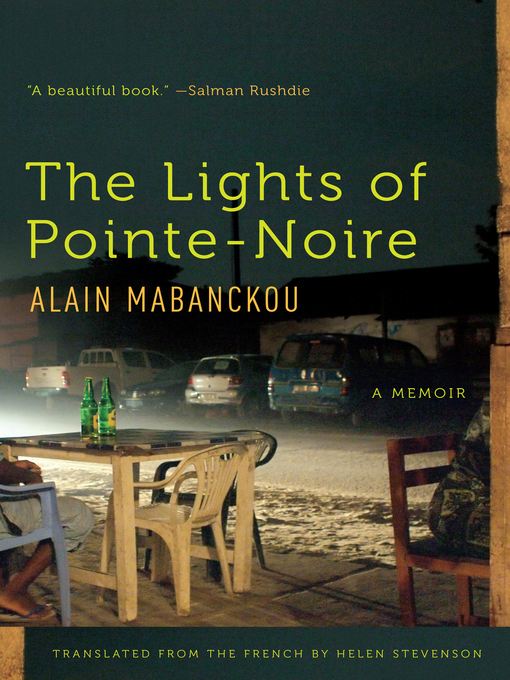
The Lights of Pointe-Noire
A Memoir
کتاب های مرتبط
- اطلاعات
- نقد و بررسی
- دیدگاه کاربران
نقد و بررسی

December 1, 2015
Beset by memories, a Congolese writer revisits his native village. In 1989, when he was 22, novelist, poet, and essayist Mabanckou (Literature/ UCLA; Letter to Jimmy, 2014, etc.) left Pointe-Noire, in the Congo, and went to France. Twenty-three years later, he returned, feeling "like a migrating bird," with "one foot suspended, hoping I might stop the flow of my existence, whose smooth course is troubled by the myriad leaves blown down from the family tree." In lyrical and disarmingly serene prose, the author evokes his shock, wonder, and sometimes dismay as he searches for his past. At the Lycee Karl Marx, where he attended secondary school, he hoped "to relive the moment when my spirit ventured far from our native land, in search of universal knowledge." Filled with apprehension as a new student, he saw education as his path away from the insularity of his family and into the world. He was incredulous when he learned that the school had been renamed, honoring a tyrannical governor of French Equatorial Africa. Much of the memoir evokes Mabanckou's family: his strong-willed mother, whose death in 1995 was so traumatic that he could not face returning for her funeral; his aunt, whom he calls Grandma Helene, "one of those people who you think has to have been born old, toothless, white haired, hesitant in her movements, like a stray gastropod"; his mother's cousin, the lecherous Grand Poupy; assorted relatives; and others who insist they are related to him, the better to extract money. They live in a world pricked by petty squabbles and swirling with superstition. Grandma Helene, for example, has "an obsessive fear of whites" because she believes a white woman will kiss her on the forehead and lead her to the land of the dead, where the sun never rises. A tender, poetic chronicle of an exile's return.
COPYRIGHT(2015) Kirkus Reviews, ALL RIGHTS RESERVED.

February 15, 2016
Award-winning novelist, poet, and essayist Mabanckou (literature, Univ. of California, Los Angeles; Broken Glass) tells the story of "going back" to the Congo and dealing with his mother's death. Structured around snippets of the past, the narrative works to distance the author from the setting, which he accomplishes by using photographs and chapter sections that reference old films such as "A fistful of dollars," "Cinema Paradiso," and "Dead poets society." The images could theoretically serve as pathways into the life Mabanckou left in the Congo in 1989. Yet, in this quality work, they exhibit a more cosmopolitan, even bourgeois, attitude, vast international cultural experience, and awareness of diverse technologies--all features of the author's experience outside of the Congo. Mabanckou blurs past and present further with a subtle writing style that involves a variety of techniques. It's no wonder he has won multiple awards. He is an artist--even of the memoir form. VERDICT An ideal choice for the intellectually curious, this work will be appreciated by readers who are versed in literary style and art from across genres.--Jesse A. Lambertson, Metamedia Management, LLC, Washington, DC
Copyright 2016 Library Journal, LLC Used with permission.

























دیدگاه کاربران